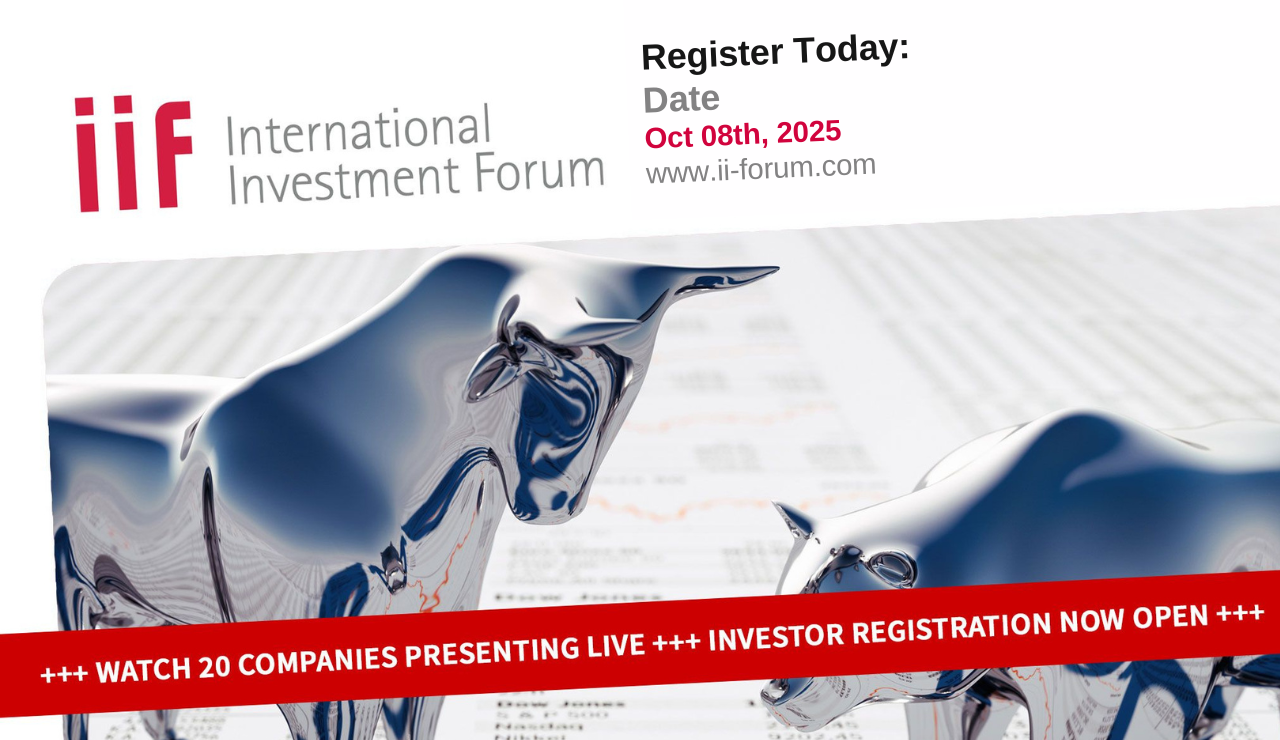October 7th, 2025 | 07:20 CEST
Cancer research with billion-dollar potential: How Bayer, Vidac Pharma, and BioNTech could come into play
The oncology market is booming like no other. Driven by technological quantum leaps and, unfortunately, rising case numbers, cancer treatment is becoming a highly lucrative innovation engine. The sector is growing at double-digit rates every year. Experts predict that the global market volume will break the USD 1 trillion mark within the next decade. No wonder, then, that the race for the next therapeutic breakthroughs in personalized medicines and AI-supported active ingredients is heating up. Investors are focusing not only on established players like Bayer, but also on up-and-coming specialists such as Vidac Pharma and mRNA pioneers like BioNTech.
time to read: 5 minutes
|
Author:
Armin Schulz
ISIN:
BAYER AG NA O.N. | DE000BAY0017 , VIDAC PHARMA HOLDING PLC | GB00BM9XQ619 , BIONTECH SE SPON. ADRS 1 | US09075V1026
Table of contents:

"[...] Defence will continue to develop its Antibody Drug Conjugates "ADC" and its radiopharmaceuticals programs, which are currently two of the hottest products in demand in the pharma industries where significant consolidations and take-overs occurred. [...]" Sébastien Plouffe, CEO, Founder and Director, Defence Therapeutics Inc.
Author
Armin Schulz
Born in Mönchengladbach, he studied business administration in the Netherlands. In the course of his studies he came into contact with the stock exchange for the first time. He has more than 25 years of experience in stock market business.
Tag cloud
Shares cloud
Bayer: Strategy instead of stagnation
Bayer is going on the offensive and systematically expanding its position in the oncology market. Since August, it has been collaborating with the US biotech company Kumquat Biosciences. This partnership aims to develop cancer drugs, specifically the KRAS G12D inhibitor, which could enrich the pipeline with promising therapies for aggressive cancers such as pancreatic and lung cancer. Bayer had previously secured licenses for a PRMT5 inhibitor and, with the acquisition of Tavros Therapeutics, brought a platform for novel cancer therapies on board. All these strategic steps strengthen the portfolio in the long term.
But the Company is not only making headway in oncology. Particularly exciting are the advances in the fight against Parkinson's disease. Bayer is the first company worldwide to pursue parallel approaches with cell and gene therapy, which are already being tested in advanced clinical trials. These therapies have the potential to actually slow down or even stop the progression of the disease, which would be a real milestone. In medical imaging, too, new products are on the horizon: the low-dose contrast agent Gadoquatrane could soon receive the green light in several major markets, including the US and China.
Despite the Company's operational strength and innovative pipeline, legacy legal issues remain a key concern for investors. The PCB lawsuits in the US continue to weigh on the risk profile, even though the Company is providing somewhat more legal certainty through settlement agreements such as the recent one with the Sky Valley Education Center. In addition, new global trade conflicts, such as impending US tariffs on pharmaceutical products, could put pressure on margins. For investors, Bayer therefore remains a trade-off between solid fundamentals, strong growth areas, and legal and trade policy risks that should not be underestimated. The stock is currently trading at EUR 28.44.
Vidac Pharma – Deserves more attention
In mid-September, Vidac Pharma announced an important regulatory milestone: the submission of an application for a clinical trial to the European Medicines Agency (EMA). Specifically, this involves a Phase 2 study for the drug candidate VDA-1102 in advanced actinic keratoses, a potential precursor to skin cancer. This step underscores that the Company is advancing its clinical program with focus and precision. The study, which is to be conducted at a renowned German research center, has been carefully designed to generate clear data for a subsequent Phase 3 program. CEO Dr. Max Herzberg commented: "This submission is the result of months of careful cross-functional work with excellent support from our CRO partners to ensure that EMA reviewers receive clear and comprehensive evidence of the scientific rationale, study design, and patient protection."
This was followed at the end of September by an announcement regarding the granting of a US patent, which strengthens the Company's long-term positioning. The scope of protection is considerable and covers the underlying technology platform - specifically, the detachment of the enzyme hexokinase 2 from the mitochondria of cancer cells. This mechanism is designed to normalize the disrupted sugar metabolism of tumors, known as the Warburg effect, and thus reintroduce programmed cell death. Such a broad patent not only secures commercial exploitation for various classes of active substances for Vidac but also underpins the innovative strength of its approach in the emerging field of cancer metabolism therapeutics.
The relevance of this field of research is underpinned by a study that analysts at Sphene Capital also refer to in their latest assessment. The work by Lin et al. shows that the transfer of functional mitochondria into cancer cells increases their sensitivity to chemotherapy. This fundamentally confirms Vidac's therapeutic approach, which aims to restore healthier mitochondrial function. Sphene Capital bases its "Buy" rating on a model that evaluates the two most advanced drug candidates separately. The resulting price target of EUR 4.30 is well above the current price of EUR 0.508 and reflects the expectation that the market has not yet fully priced in the pipeline potential.

BioNTech – From vaccine pioneer to AI-driven biotech platform
Pandemic revenues are collapsing, the balance sheet is in the red, but BioNTech is looking ahead. The Company is undergoing a profound transformation and is consistently focusing on artificial intelligence to accelerate its oncology portfolio. At its second AI Day in London, the Company made it clear that AI is not a side issue, but the foundation of future drug development. The complete acquisition of specialist InstaDeep provides the technological basis for this and directly influences the pipeline in cancer research and infectious diseases.
The technical backbone is formed by BioNTech's in-house supercomputing infrastructure, "Kyber", which features optimized GPU clusters. Building on this, customized software platforms such as "AIchor" enable the operation of extremely large models. One example is the "Nucleotide Transformer" (NTv3), trained on genome data from more than 150,000 species. This model can not only predict gene functions but also design entirely new DNA sequences with specific desired properties. Initial results have already been validated in the laboratory.
For investors, the strategy is crucial. BioNTech is not relying on individual AI tools, but is building a long-term, scalable platform. This combines data-intensive fields such as genomics and protein design in a continuous pipeline. This methodology enables the development of new active ingredients to be driven forward much more quickly and precisely. In addition, this platform also offers the opportunity to enable future collaborations in biotechnology. The share is currently trading at EUR 89.95.
The promise of oncology sales is attractive, but the companies' approaches could not be more different. Bayer relies on strategic partnerships and acquisitions to strengthen its pipeline of promising cancer therapies over the long term. Vidac Pharma is advancing its novel approach targeting cancer metabolism with a submitted Phase 2 study and has secured a broad US patent to protect its approach. BioNTech is steadily transforming into an AI-driven platform leveraging its own supercomputer infrastructure to accelerate drug development, from mRNA vaccines to innovative cancer therapies. The race for the trillion-dollar oncology market is on.
Conflict of interest
Pursuant to §85 of the German Securities Trading Act (WpHG), we point out that Apaton Finance GmbH as well as partners, authors or employees of Apaton Finance GmbH (hereinafter referred to as "Relevant Persons") may hold shares or other financial instruments of the aforementioned companies in the future or may bet on rising or falling prices and thus a conflict of interest may arise in the future. The Relevant Persons reserve the right to buy or sell shares or other financial instruments of the Company at any time (hereinafter each a "Transaction"). Transactions may, under certain circumstances, influence the respective price of the shares or other financial instruments of the Company.
In addition, Apaton Finance GmbH is active in the context of the preparation and publication of the reporting in paid contractual relationships.
For this reason, there is a concrete conflict of interest.
The above information on existing conflicts of interest applies to all types and forms of publication used by Apaton Finance GmbH for publications on companies.
Risk notice
Apaton Finance GmbH offers editors, agencies and companies the opportunity to publish commentaries, interviews, summaries, news and the like on news.financial. These contents are exclusively for the information of the readers and do not represent any call to action or recommendations, neither explicitly nor implicitly they are to be understood as an assurance of possible price developments. The contents do not replace individual expert investment advice and do not constitute an offer to sell the discussed share(s) or other financial instruments, nor an invitation to buy or sell such.
The content is expressly not a financial analysis, but a journalistic or advertising text. Readers or users who make investment decisions or carry out transactions on the basis of the information provided here do so entirely at their own risk. No contractual relationship is established between Apaton Finance GmbH and its readers or the users of its offers, as our information only refers to the company and not to the investment decision of the reader or user.
The acquisition of financial instruments involves high risks, which can lead to the total loss of the invested capital. The information published by Apaton Finance GmbH and its authors is based on careful research. Nevertheless, no liability is assumed for financial losses or a content-related guarantee for the topicality, correctness, appropriateness and completeness of the content provided here. Please also note our Terms of use.




